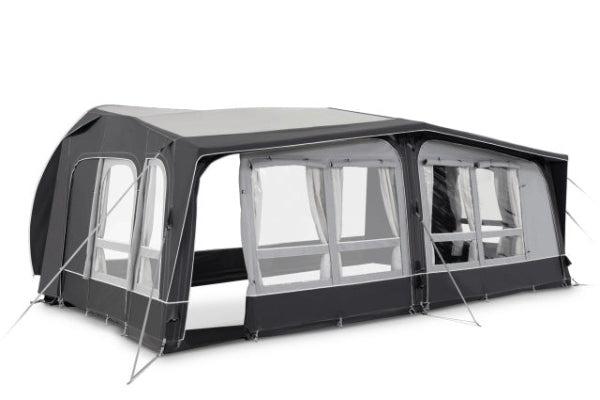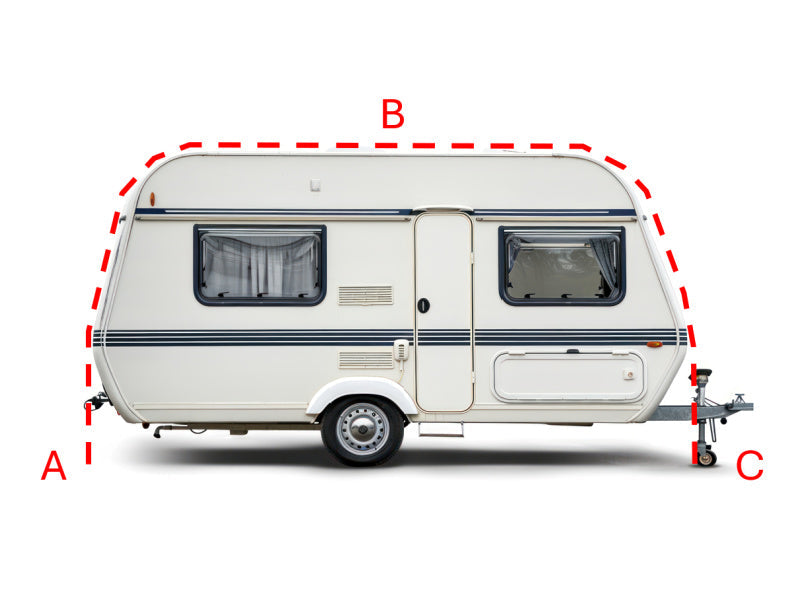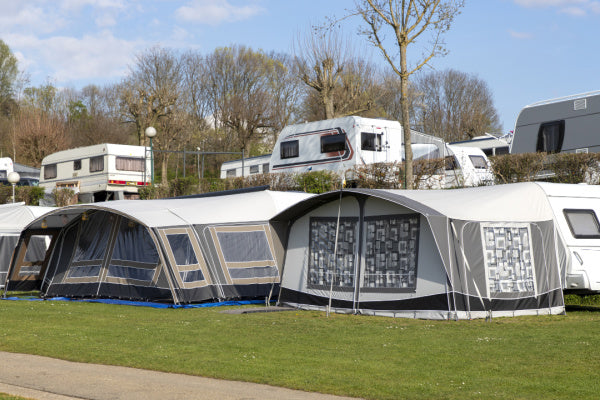Can you run Dometic AC while driving?
Stuck in traffic with your caravan feeling more oven than adventure? Wondering if your Dometic AC can run while driving?
Short answer: sometimes — if your setup supports it.
This guide on Caravan and Motorhome Air Conditioning breaks it down so you don’t fry your fuses (or your mood). Keep reading.
Powering Your Dometic AC on the Move
The Short Answer: Yes, But It's All About the Power Source
You can run a Dometic AC while driving, but it depends on your setup.
The type of unit you have, your power system, and how it's all connected will determine what's possible.
If you don’t have the right power source, your AC may not run at all. Worse, it might put strain on your electrical system.
Let’s take a closer look at why that matters.
Why You Can't Just Plug It In
Most Dometic air conditioners run on either 230V AC or 12V DC. These aren’t typically supplied directly by your vehicle while driving.
Without a dedicated system in place, your air conditioning won’t operate properly. In fact, it could even trip circuits or damage your setup.
That’s why it’s not as simple as flicking a switch and hoping for the best.

Comparing Dashboard AC to a Rooftop Unit
Vehicle dashboard AC is made for cooling just the driver’s cabin. It draws power straight from the engine.
On the other hand, rooftop Dometic AC units are designed to cool the living space of your caravan or motorhome.
This requires a much larger and more stable power supply.
Trying to run a rooftop unit without adequate support just won’t cut it.
Power Option 1: Using a Generator
A generator is one way to run your Dometic AC while travelling.
It can provide the voltage and current needed when your vehicle alone can’t.
Built-in vs. Portable Generators
Some motorhomes come with a built-in generator. These are often wired into your system and are safe to use while driving.
Portable generators are a more flexible option but require careful setup. They must be properly secured and ventilated at all times.
Each has its own pros and cons depending on your space, budget, and technical knowledge.
Safety Considerations for Running a Generator While Driving
Using a generator on the move brings several safety issues.
You’ll need to ensure it’s securely mounted and has clear exhaust ventilation. Improper placement can lead to fire hazards or carbon monoxide risks.
Always follow manufacturer guidance, and never run a generator inside a closed vehicle or caravan.
Fuel Consumption and Noise
Generators do consume additional fuel, especially under heavy AC use.
The noise can also be noticeable, depending on your model.
While it may be worth it for a more comfortable journey, it’s something to weigh carefully.

Power Option 2: Inverters and Battery Banks
Another option is to use an inverter paired with a strong battery bank.
This approach is quieter and more suited to extended use, especially for eco-conscious travellers.
The Role of an Inverter in Converting DC to AC Power
An inverter takes 12V DC from your battery and converts it into the 230V AC that most Dometic units need.
However, not just any inverter will do.
You’ll need one that can handle high-wattage loads and startup surges from the air conditioner.
A low-end inverter won’t cut it here.
The Importance of a Sufficiently Large Battery Bank (Lithium vs. AGM)
AC units pull a lot of power, especially over time.
That’s why a large-capacity battery bank is essential. Lithium batteries are generally better suited for this than AGM ones.
They last longer, charge faster, and can handle deeper discharges without damage.
The Impact of Solar and Alternator Charging
While driving, your alternator can help keep your batteries topped up. Solar panels also provide useful input, especially on sunny days.
That said, solar alone likely won’t power your AC fully. It’s best used to extend your available runtime.
Combining solar and alternator charging gives you more flexibility and peace of mind.
Practical Considerations and Best Practices
Is It Safe and Recommended?
Running a Dometic AC on the road is convenient — but only if done right.
Safety, legality, and long-term wear all need to be considered.
What Dometic Recommends for Their Units
Each Dometic model has its own guidelines.
For example, the FreshJet and Brisk II might work while in motion under certain conditions.
However, models like the Combi are not recommended during travel.
Check your manual and warranty details before powering up.
Potential Risks and How to Mitigate Them
Improper use of AC units while driving can damage your electrical system, reduce efficiency, or even cause a breakdown.
Worst case, you may void your warranty.
Mitigate these risks by ensuring your system is properly sized, professionally installed, and regularly maintained.
The Importance of Proper Installation and Securing Your Unit
A secure installation is vital.
Loose wiring or unstable units can become dangerous when the vehicle is moving.
Ensure all components are fixed firmly, cables are protected from vibration, and everything complies with safety standards.

Tips for Efficient Cooling on the Road
Getting the best performance doesn’t always mean blasting the AC at full power.
A few simple tricks can go a long way.
Pre-cooling Your Motorhome Before You Leave
If you’re connected to shore power before departure, run the AC to chill your space in advance.
This reduces the workload during travel and keeps the space cooler for longer.
Using Window Coverings and Insulation to Your Advantage
Cover your windows with thermal blinds or reflective shades.
Even DIY solutions like foil-backed curtains can make a difference.
Adding roof vent covers also helps prevent heat from building up inside.
Managing Power Consumption to Avoid Overloading Your System
Don’t run every appliance at once — especially not while the AC is running.
Monitor your power draw and know the limits of your inverter and battery system.
If you overload them, you risk shutdowns or damage.
Other content you might like:
- Caravan Air Conditioner Brands
- Can You Put Air Conditioning In A Caravan?
- Do Caravan Air Conditioners Need Regassing?
- How To Keep A Caravan Cool In Hot Weather?
- Where Does The Water Go From A Caravan Air Conditioner?
- How Do Caravan Air Conditioners Work?
- How Long Does A Caravan Air Con Last?
- Why Is My Caravan Aircon Not Getting Cold?
- Do You Need Air Con In A Motorhome?
- Truma Vs Dometic Air Conditioner





Leave a comment